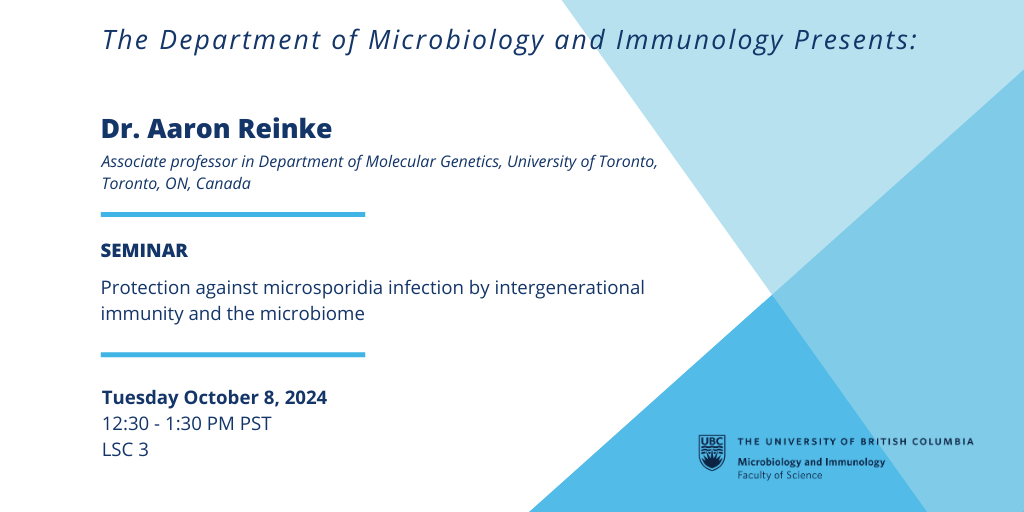
Seminar: Protection against microsporidia infection by intergenerational immunity and the microbiome
Abstract: Microsporidia are fungal-related, obligate intracellular parasites that can infect most types of animals including humans. Nematocida parisii is a microsporidian pathogen that commonly infects the model organism C. elegans in the wild. Using this system we have identified and characterized a robust immune response that C. elegans parents transfer to their offspring. We have also examined how bacteria can impact microsporidia infection. Our findings suggest that interactions between members of the C. elegans microbiome and N. parisii are common and that these bacteria influence microsporidia growth by modulating host metabolism and by producing compounds that limit microsporidia infection.
LSC 3 (Life Sciences Institute - 2350 Health Sciences Mall) MBIM itsupport@microbiology.ubc.ca America/Vancouver publicSeminar: Protection against microsporidia infection by intergenerational immunity and the microbiome
Abstract: Microsporidia are fungal-related, obligate intracellular parasites that can infect most types of animals including humans. Nematocida parisii is a microsporidian pathogen that commonly infects the model organism C. elegans in the wild. Using this system we have identified and characterized a robust immune response that C. elegans parents transfer to their offspring. We have also examined how bacteria can impact microsporidia infection. Our findings suggest that interactions between members of the C. elegans microbiome and N. parisii are common and that these bacteria influence microsporidia growth by modulating host metabolism and by producing compounds that limit microsporidia infection.

